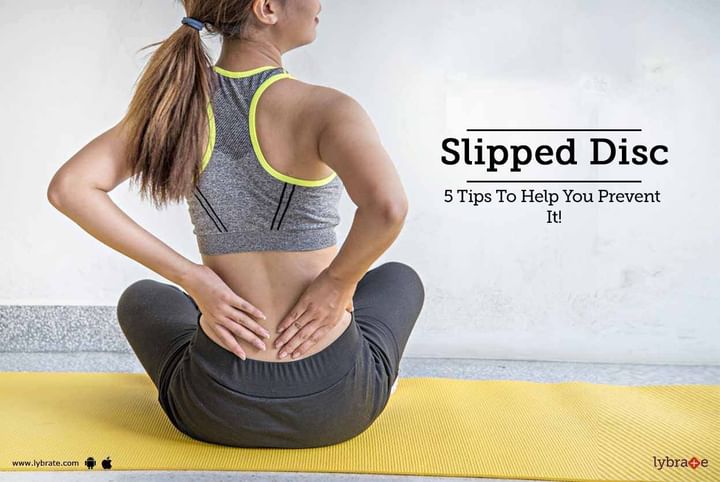Slipped Disc - 5 Tips To Help You Prevent It!
Slipped disc, also known as spinal disc herniation, is a medical condition which affects the spine. The spinal column of the human body is composed of a series of bones (also known as the vertebrae), which are stacked on top of each other. All these bones are cushioned from all sides by discs, which absorb any and all shocks from day to day activities such as lifting, twisting and walking. All discs have two parts: a soft inner portion, and a hard outer ring. Due to weakness or injury, the inner part of the disc can protrude through the hard outer ring. When this happens, the condition is known as a slipped disc.
How to prevent slipped disc?
Slipped disc can be avoided by maintaining a few things:
- Exercise: Slipped discs are generally associated with age; so regular exercise can help delay the deterioration of the discs. Regular exercise can also help strengthen your back muscles.
- Keeping your weight in control: The more your weight, the more the strain your back muscles go through, so it is essential to maintain healthy weight that should ease the pressure.
- Stop smoking: Nicotine is harmful for the discs present in your back, as it lowers the capability of the discs to properly absorb the nutrients needed for staying healthy.
- Maintaining proper posture: While slouching or slumping alone might not be responsible for a slipped disc, but if your back muscles are already strained, the bad posture could make it even worse. It’s necessary to maintain good posture not only while walking or standing, but also when sitting, as well as sleeping.
- Be careful while lifting: Lifting heavy objects can put a lot of strain on the back muscles, as well as the disc surrounding it. Be cautious not to lean sideways or twist your back while in the process of lifting; and always lift only as much as you can manage.
Available treatment options for slipped disc
Generally, a slipped disc is supposed to improve, given rest, medication and exercise. It can take anywhere between one to three months to achieve complete recovery.
- Keeping active: After having suffered from a slipped disc, keeping active is very important. While it can be a bit problematic to move, gentle exercise is essential. Swimming is helpful, as the water doesn’t put a lot of strain on the joints, while still supporting your weight.
- Physiotherapy: Physiotherapy is an important part of the recuperation programme. Using techniques such as manipulation and massage, physiotherapists work to restore function and movement in patients.
- Medication: This includes painkillers such as paracetamol, or any other medicine prescribed by the doctor. Over the counter medications are available, but they should always be taken with caution.
- Surgery: A few cases of slipped disc require surgery, especially if the patient’s symptoms have not improved even after other treatments, or if the patient has problems with walking or standing.



+1.svg)
